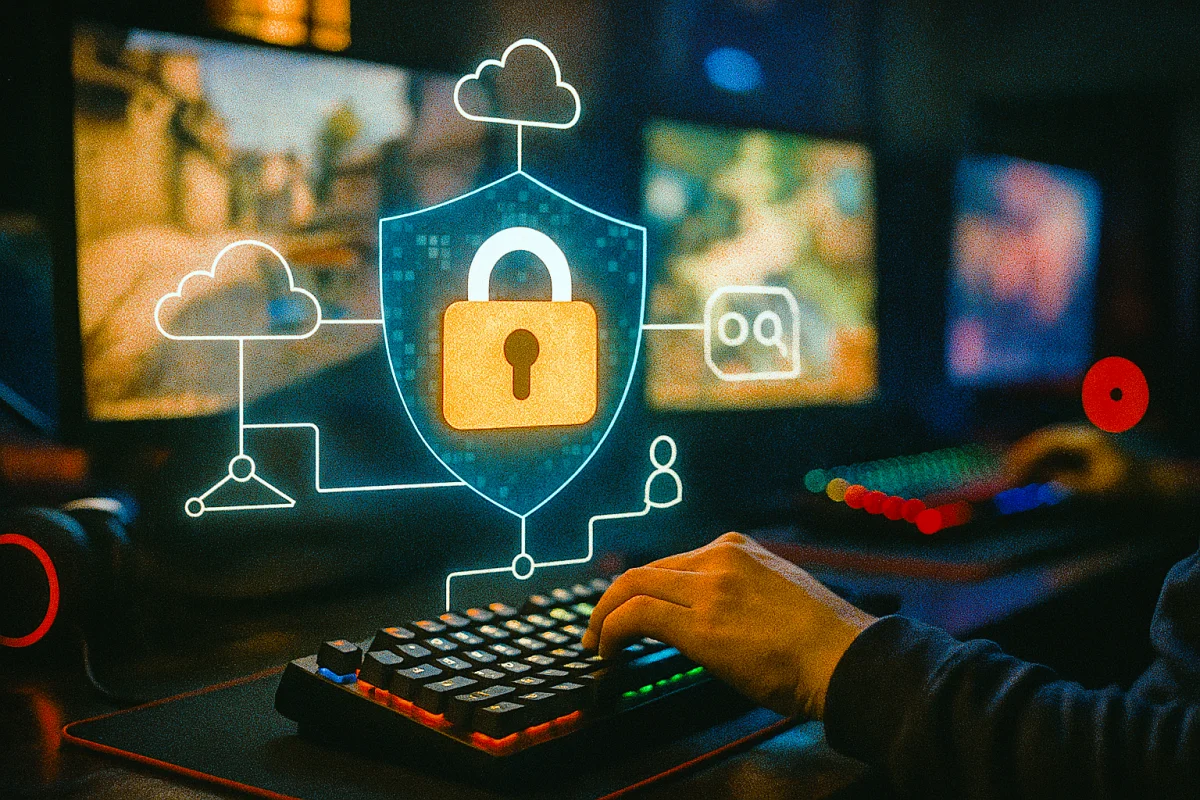Why Are Security and Privacy Important in Gaming?
In today’s digital gaming era, where millions of players connect to online platforms simultaneously, security and privacy have become more critical than ever. Gaming is no longer just entertainment — it creates social communities, economic ecosystems, and often involves financial transactions. That’s why security is directly tied to player trust and the sustainability of the industry.

Protecting Personal Data
During registration, players often provide personal details such as names, email addresses, financial information, and sometimes even location data. If this information isn’t adequately protected, it can lead to data breaches or hacking attacks. Compromised privacy not only results in legal issues but also damages the industry’s reputation.
Financial Security
Modern games frequently involve microtransactions, in-game economies, and even crypto-based systems. Player accounts are tempting targets for cybercriminals. Companies must therefore implement secure payment channels, two-factor authentication, and continuous transaction monitoring to protect users.
Online Interactions and Toxic Behavior
Gaming has long surpassed the boundaries of play — it has become a social space where people interact via voice chats, text messaging, and forums. However, this also introduces risks: cyberbullying, toxic behavior, and the unwanted sharing of private information. Protecting players requires effective monitoring, blocking phishing attempts, and robust reporting systems.
Data Collection and Usage
Many gaming companies collect behavioral data, tracking when players log in, what choices they make, and how they engage with the game. While this can improve the gaming experience, it also raises privacy concerns. Transparency is key: players must know what data is being collected and how companies intend to use it.
Security Standards
Today’s gaming industry needs strict standards to ensure data protection and fairness. These include:
- Compliance with GDPR and other international regulations.
- Implementation of secure servers and encryption systems.
- Raising player awareness about cybersecurity best practices.
Conclusion
Games are now an integral part of modern society, creating virtual worlds where people learn, connect, and entertain themselves. Yet the safety of these worlds depends on how well security and privacy are upheld. Without protection, the future of gaming faces serious risks. With the right approach, however, gaming can become a trusted and safe space for everyone.
✍ Article Author
- Registered: 26 July 2025, 15:34




 Silent Cat 🐾
Silent Cat 🐾